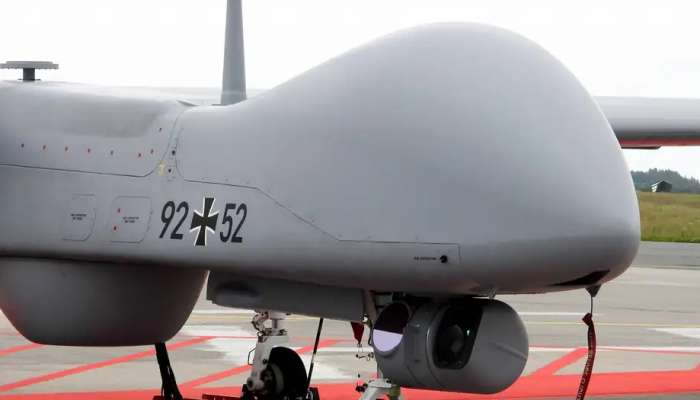
Copenhagen: European leaders met in Copenhagen under a sky heavily guarded by military, law-enforcement and technological reinforcements from NATO countries, sent in especially for the occasion after the stress caused by the previous week's seven-day dronewave.
"There is not only hybrid attacks, there is a hybrid war going on in Europe right now," warned the host, Danish Prime Minister Mette Frederiksen, adding that she believed Europe had "underestimated how big a threat Russia actually is."
"We need to strengthen our production of drones, of anti-drone capabilities, and this includes building up a European network of anti-drone measures that can protect and, of course, also neutralize intrusion from outside," Frederiksen said after the EU summit Wednesday. She estimated the bloc needs to be able to "defend ourselves totally" by the year 2030 at the latest.
That's the target date on a European Commission "scoping document" released before the summit, and which European Council President Antonio Costa said received "broad support” at the summit. The four "flagship projects" the European Commission has proposed and prioritized include an "Eastern Flank Watch," an air defence shield, a defense space shield and the "drone wall."
But due to the experiences in Poland and Denmark— and at Munich Airport and in Belgium in just the last couple of days — counter-drone defense is really driving the discussion at the moment. Some experts are criticizing the use of the term "drone wall," however, because it may give citizens the impression there is some way to erect a near-impenetrable fortress against aerial incursions.
Among those critics is French President Emmanuel Macron. "I'm wary of quick terms," he said. "Do Europeans have iron domes or drone walls? Things are more sophisticated and more complex."
A hole in the wall argument
Daniel Hegedus with the German Marshall Fund of the United States is among those urging caution in over-promising the drone wall. Hegedus does not dispute that European countries must pursue and purchase counter-drone capabilities as quickly as possible. But, he tells DW, "it's a question whether really the most efficient way is to have a huge pan-European program" like the European Commission and some member states may be envisioning. "There are no impenetrable defenses," he said.
"If we take a look on the cost-efficiency of this [drone wall] effort actually in the defense context," Hegedus said, "then unfortunately we also need to come to the conclusion that with all of these resources, Europe could build actually much more effective deterrence or can influence the cost-benefit calculations of Russia instead of investing heavily in a project that will bear its first fruits in two or three years at the earliest."
To do both these things, Hegedus suggests ensuring Moscow knows there will be a heavy cost in continuing these hybrid tactics, "steps that will cost Russia immediately and dearly." He says European countries should respond to an escalation of hybrid war on them with "further deliveries of long-range strike weapons to Ukraine, [so that] Ukrainians will immediately have larger capacities to conduct deep strikes in Russia."
Another of Hegedus' recommendations for curbing drone incursions may get more traction following developments on Friday in Denmark and Sweden. He would like to see Denmark and Sweden, with EU backing, police the Danish Straits much more aggressively. The straits are a critical waterway connecting the Baltic and North seas that Russia uses for transporting about a third of its seaborne crude oil exports.
At a hastily-called press conference early Friday morning, the director of Denmark's defense intelligence service, Thomas Ahrenkiel, released the first national threat assessment of Russia's hybrid war efforts. "We have seen several incidents in the Danish straits where Danish air force helicopters and naval vessels have been targeted by tracking radars and physically pointed at with weapons from Russian warships," Ahrenkiel said.
A shadow-fleet tanker that was positioned off the Danish coast early last week, now detained by France, is also suspected of being involved in the drone wave against Denmark. Later on Friday, Sweden proposed legislation to increase security in the Baltic Sea by expanding its coast guard's ability to conduct maritime surveillance.